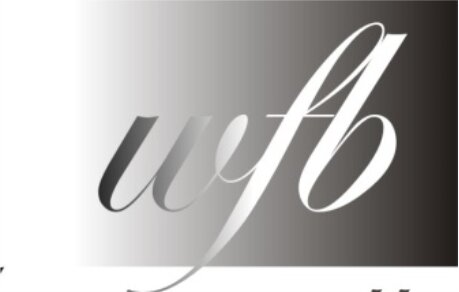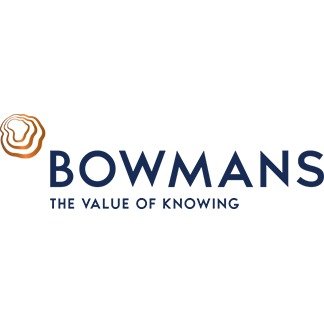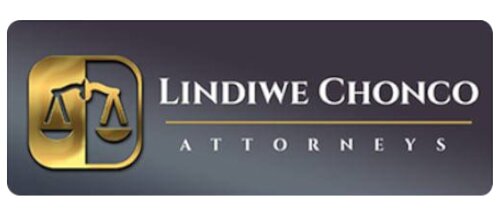Best Patent Lawyers in South Africa
Share your needs with us, get contacted by law firms.
Free. Takes 2 min.
Or refine your search by selecting a city:
List of the best lawyers in South Africa
About Patent Law in South Africa
Patent law in South Africa is governed by the Patents Act 57 of 1978. It provides a legal framework for the protection of inventions, granting inventors exclusive rights to their creations for a limited period. This law is crucial for fostering innovation by allowing inventors to benefit commercially from their inventions without the fear of immediate competition. The South African Companies and Intellectual Property Commission (CIPC) is responsible for maintaining the patent system. Applicants must comply with the requirements laid out by CIPC to ensure their inventions are patentable.
Why You May Need a Lawyer
Seeking the assistance of a lawyer when dealing with patents can be crucial for several reasons. Some common situations include:
- To determine if an invention qualifies for a patent: A lawyer can help assess whether an invention meets the novelty, inventiveness, and utility requirements.
- Filing a patent application: Lawyers can guide applicants through the complex process of drafting and filing an application.
- Defending a patent: Legal advice is essential if a patent is challenged or if infringement occurs.
- Licensing: Negotiating agreements for the use of a patent can be legally intricate.
- Portfolio management: Businesses with multiple inventions may need strategic guidance on patent management.
Local Laws Overview
South African patent law emphasizes several key areas:
- Patentability: Inventions must be new, involve an inventive step, and be capable of being used in trade or industry.
- Patent Term: The protection lasts for up to 20 years, provided renewal fees are paid annually.
- Applications: South Africa accepts international applications via the Patent Cooperation Treaty (PCT) route, in addition to local filings.
- Exclusions: Discoveries, scientific theories, and mathematical methods do not qualify for patent protection.
- Compulsory Licenses: Under specific conditions, third parties may be granted licenses to use a patent without the patent holder’s consent, often related to anti-competitive practices.
Frequently Asked Questions
What is a patent?
A patent is an exclusive right granted for an invention, which is a product or a process providing a new technological solution to a problem.
How do I apply for a patent in South Africa?
Applicants must file with the CIPC, either directly or through the PCT. The application must include a detailed description of the invention, claims, and necessary forms and fees.
Can I apply for a patent on my own?
While it is possible, it is advisable to seek professional assistance to avoid pitfalls in the application process and to enhance the quality of the application.
How long does it take to get a patent in South Africa?
The time varies, but the process usually takes 2-3 years from filing to grant, depending on the complexity of the application and the CIPC’s workload.
What are the fees involved in obtaining a patent?
Fees include filing, search, examination, and renewal fees. Additional costs may result from professional assistance. It is important to review the CIPC’s fee schedule for the most accurate information.
What happens if someone infringes on my patent?
Patent holders can take legal action to enforce their rights, potentially resulting in injunctions against the infringer or compensation for damages suffered.
Can a patent be revoked?
Yes, a patent can be revoked if it is deemed to lack novelty or inventiveness or if it was obtained through fraudulent means.
How do patent renewals work?
Patents must be renewed annually by paying renewal fees. Failure to do so results in the lapse of the patent right.
Can software be patented in South Africa?
Typically, software as such is not patentable. However, if tied to a novel hardware invention or producing a technical effect, it may be considered.
What is the role of a patent attorney?
Patent attorneys are experts who assist in drafting applications, provide strategic advice on portfolio management, negotiate licenses, and offer representation in legal proceedings.
Additional Resources
For more information and assistance, the following resources are recommended:
- Companies and Intellectual Property Commission (CIPC): The official regulatory authority for patent registration and maintenance.
- South African Institute of Intellectual Property Law (SAIIPL): Offers guidance and resources related to intellectual property law.
- World Intellectual Property Organization (WIPO): Provides information on international patent applications through the PCT.
- Local patent attorneys: Professionals who specialize in patent law and can offer personalized assistance.
Next Steps
If you require legal assistance with patents in South Africa, consider taking the following steps:
- Assess your needs: Determine the complexity and scope of your patent-related issue.
- Consult a lawyer: Seek the advice of a qualified patent attorney to understand your options and the costs involved.
- Review available resources: Make use of the CIPC, SAIIPL, and WIPO websites for additional guidance.
- Prepare necessary documentation: Gather all relevant documents and information for your consultation or application.
- Stay informed: Keep up-to-date with changes in patent law and regulations to ensure compliance and protection.
Lawzana helps you find the best lawyers and law firms in South Africa through a curated and pre-screened list of qualified legal professionals. Our platform offers rankings and detailed profiles of attorneys and law firms, allowing you to compare based on practice areas, including Patent, experience, and client feedback.
Each profile includes a description of the firm's areas of practice, client reviews, team members and partners, year of establishment, spoken languages, office locations, contact information, social media presence, and any published articles or resources. Most firms on our platform speak English and are experienced in both local and international legal matters.
Get a quote from top-rated law firms in South Africa — quickly, securely, and without unnecessary hassle.
Disclaimer:
The information provided on this page is for general informational purposes only and does not constitute legal advice. While we strive to ensure the accuracy and relevance of the content, legal information may change over time, and interpretations of the law can vary. You should always consult with a qualified legal professional for advice specific to your situation.
We disclaim all liability for actions taken or not taken based on the content of this page. If you believe any information is incorrect or outdated, please contact us, and we will review and update it where appropriate.
Browse patent law firms by city in South Africa
Refine your search by selecting a city.
















